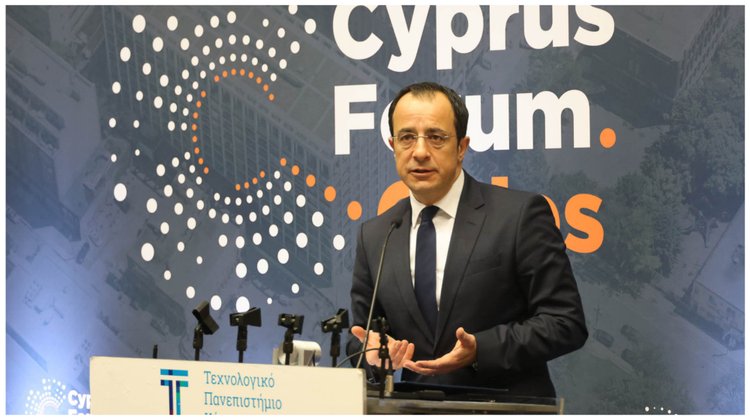President: Cyprus to implement online non-binding referendums
10:58 - 10 April 2023

Cypriots will be able to share their opinion through electronic non-binding referendums, President Nikos Christodoulides said addressing the two-day Cyprus Forum Cities conference in Limassol.
The relevant deputy ministry is already working on how the institution will be implemented after the Easter holidays, the president said.
This was one of Christodoulides’ presidential campaign promises.
He noted that “at regular intervals,” the government will turn to the public to hear their opinion on serious issues.
“It does not mean that society’s view will always be followed, but we think it is important to take into account what society thinks in our decisions,” he said, explaining that it is the people who will be called to implement the decisions.
The president also referred to the local government reform, assuring that more powers will be given to local authorities.
“The executive, the central state is not able to respond to the extent that local authorities can respond to the daily needs of cities, communities,” he said, welcoming the Cyprus Forum Cities young people initiative.
The Cyprus Forum Cities is the unification of the “2040” series organised by Oxygono in a single forum, one of the largest local government conferences in Cyprus. It aims, among others, to assist the municipalities and communities to develop new dynamics and technologies for the benefit of all people.
“Developing synergies such as the one encouraged today is very important, as it brings together organisations such as Oxygono, government, local government, the academic community and business…to achieve a holistic approach to key challenges that we face, but also for necessary changes and reforms that will take our country forward,” Christodoulides said.
He added that the government has integrated policies for all the sectors discussed at the conference, including the circular economy, sustainable mobility, energy, the environment, the blue economy, higher education and tourism.
The ultimate goal, he said, is for the economy of the island to be resilient and competitive.
“We need to reduce as much as we can, based on real data, our dependence, we are an open economy, on external factors, so we need to become more resilient and more competitive, always in line with the principles of sustainable development and the circular economy,” he said.
As regards green economy, Cyprus integrated a horizontal plan that is fully compatible with the objectives of the European Commission and the Fit-for-55 package, he said.
Meanwhile, the cabinet will soon announce decisions to strengthen the national action plan for circular economy with the aim to accelerate the transition to renewable energy sources (RES). To this end, communication with the scientific world and technocrats will be strengthened.
“We are integrating the challenges of climate change into the country’s new economic development model by introducing specific tools, such as, for example, the green budget,” the president noted.
Cyprus is promoted as a test bed for new green energy technologies to attract investment in this sector, while the government is supporting businesses to reduce their carbon footprint, he added.
The ‘pay as you throw’ scheme has also made a positive impact by significantly reducing the volume of organic waste and in this context Limassol was chosen to be among the 100 Climate Neutral and Smart Cities by 2030 through the EU Mission 2030 programme.
Christodoulides then referred to his government’s priorities regarding the tourism sector, such as the enrichment of the tourism product through the promotion of the circular economy and the creation of a network of green hotels. Specific programmes will also promote green and blue professions and strengthen research and innovation in sustainability and the green economy, he added.
Among the state’s priorities is also the strengthening of the maritime sector, with the creation of a ‘One-Stop-Shipping Centre’ and the development of infrastructure in ports and the maritime space of the Republic with alternative fuels for maritime transport.
Another way to broaden the productive base of the island’s economy is to support higher education by creating a national strategy. This will include actions such as transnational agreements on mutual recognition of qualifications, which reinforces the internationalisation of the sector, Christodoulides explained.
(Source: CNA)
